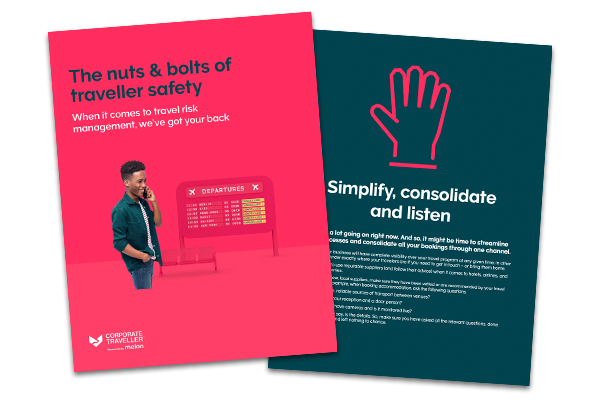
How to build a proactive travel risk management policy
Traveling is a core part of your business, but along with that comes potential risks. As a business, you need to be on top of duty of care. So how do you protect the safety and security of your team? It starts with having a proactive travel risk management policy in place.
Where do you even start? You'll want to build a framework for risk management and leverage the expertise of a travel management company who puts your people first. We can help you put your team at the heart of your policy and regularly review, adjust, and adapt.
Short on time? Download our Effective Risk Management guide to learn more.
